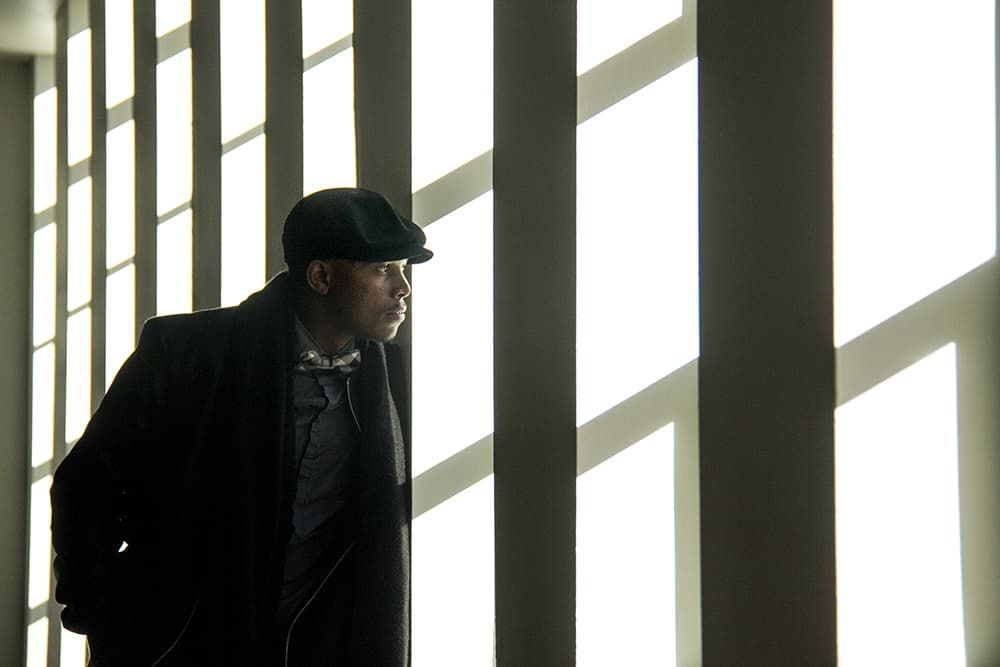
Goshen Carmel had gone a decade without seeing his mother. Refugees from the Democratic Republic of Congo, his family of 11 had been split up in the wake of ongoing war.
Carmel was resettled by the U.N. to Denver in 2010. When his mom finally had the opportunity to follow suit and reunite with him last September, Carmel told her they'd have to wait just a bit longer.
"I told her, 'Hey Mom, I will not be able to see you,'" Carmel remembers. "I told her, 'I was nominated to go to the White House."

Since his resettlement to the U.S., Carmel has furiously followed a dream to become a photographer and filmmaker. In 2013 he met Brigid McAuliffe, co-founder and director of Denver-based Picture Me Here, which aims to help refugees tell their own tales by putting storytelling tools directly into their hands.
Impressed by Carmel's passion, McAuliffe (with help from Denver's Office of Immigrant and Refugee Affairs) nominated him to attend former President Barack Obama's Leaders’ Summit on Refugees, where he met former U.S. Secretary of State and U.N. Ambassador Madeline Albright, who herself was resettled to Denver as a refugee.
"It was a message," Carmel said. “Anything’s possible. You can become somebody too.”
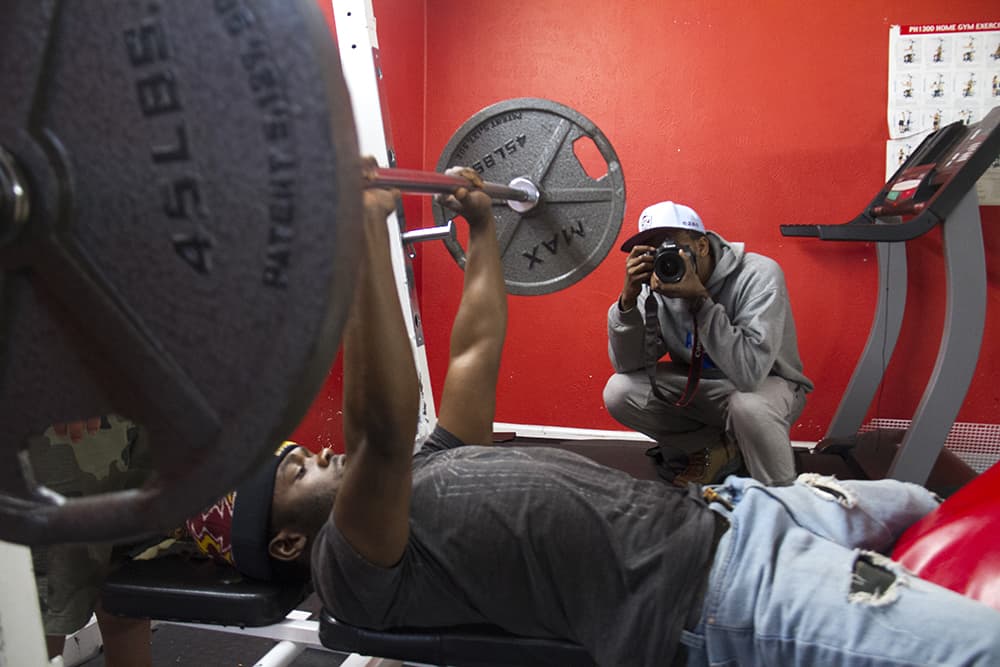
It's this very message that Carmel has worked to imbue in his work, which is now on display in a new exhibit at the McNichols building, part of a larger Picture Me Here installation showcasing stories by refugees about refugees.
"That’s why I want to keep pursuing my dream to become a filmmaker and photographer," he says. "So that I could defy odds.”
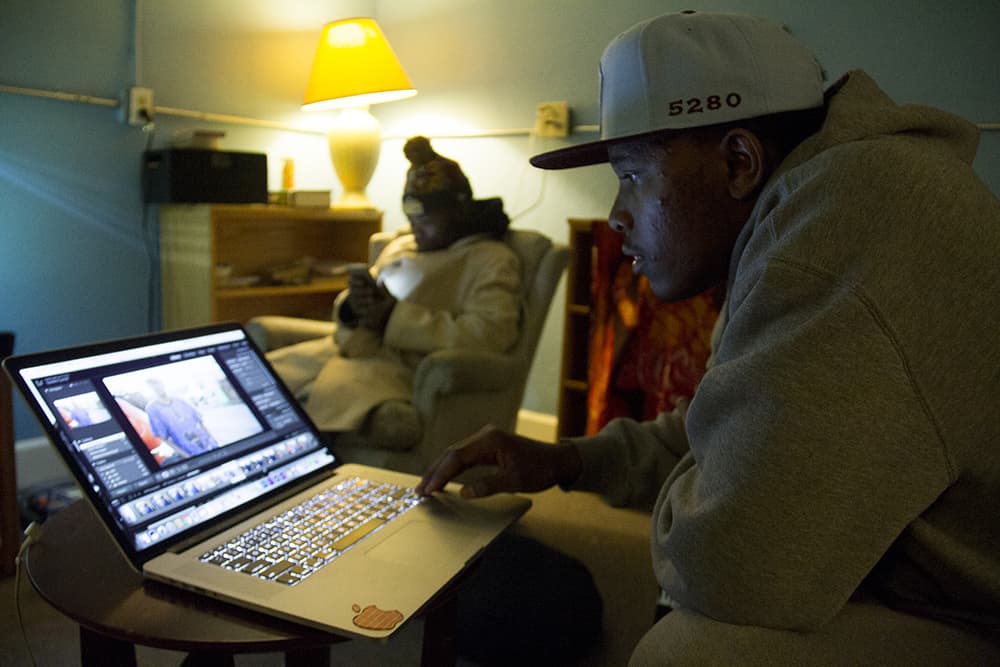
Carmel says Denverites by and large don't understand the humanity in refugees' stories, in part, he says, "because refugees don’t want to talk about it."
“I want filmmaking and photography to be a voice for them,” he says, a "bridge" that allows a non-refugee audience to see through new eyes.
This exercise in new perspective is what Brigid McAuliffe calls "that rare glint of integration," which has come to define Picture Me Here's mission.
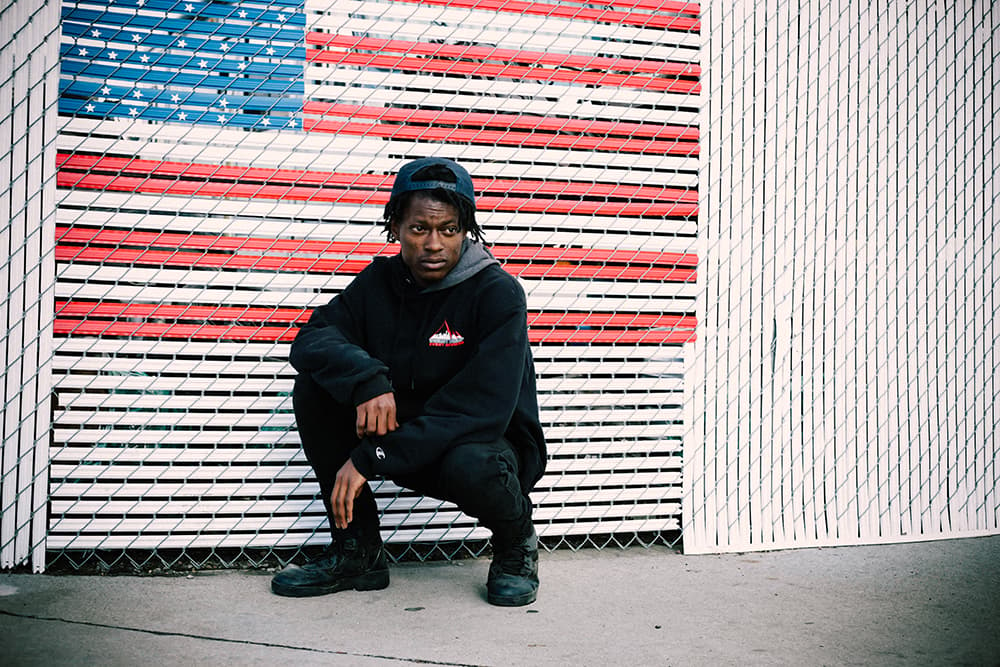
“I started to question who’s telling whose story and who has that power,” she said, noting that refugees are so often cast in a negative, helpless light. "Often people who come to our exhibit who have never met a refugee are bracing themselves for those kinds of stories."
By putting the tools in the hands of people like Carmel, she says, audiences might be able to see "beautiful simple human stories" in the lives of America's refugees.
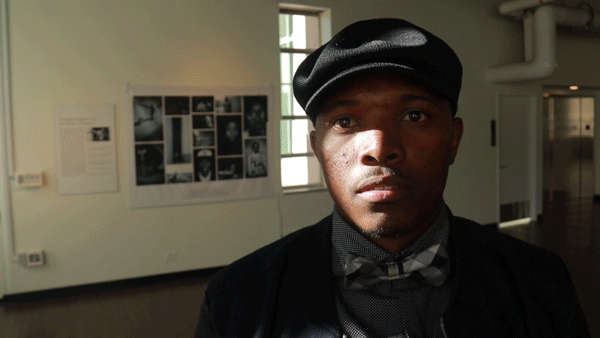
And though this exhibit has been in the works for months, both Carmel and McAuliffe agree this comes at a particularly important time. In recent weeks Denver has seen vocal response to words and actions of President Donald Trump and his administration limiting refugees access to the U.S.
“All refugees should be called Americans,” Carmel said. “All refugees have a dream and anybody has the right to dream to become what they want to become.”
For Goshen Carmel, that dream is becoming a reality.
On a Sunday afternoon he walks into the McNichols gallery to see his work on a wall for the first time. As he stares at the canvas he says to himself, "This is what I was meant to do."
Click and drag to see in 360°.
You can peruse the exhibit on the second floor of the McNichols Building, 144 W. Colfax Ave in Civic Center Park, during their open hours on Saturday and Sunday from 10 a.m.-3 p.m. The show will be up until April 30th. They're also having a reception to celebrate ongoing exhibits on March 17th from 6-10 p.m.
See more of Carmel's work on his Vimeo page.
CORRECTION: This article was changed from calling Brigid McAuliffe "founder" of Picture Me Here to "co-founder and director," and clarified that she nominated Carmel in junction with Denver's Office of Immigrant and Refugee Affairs.












